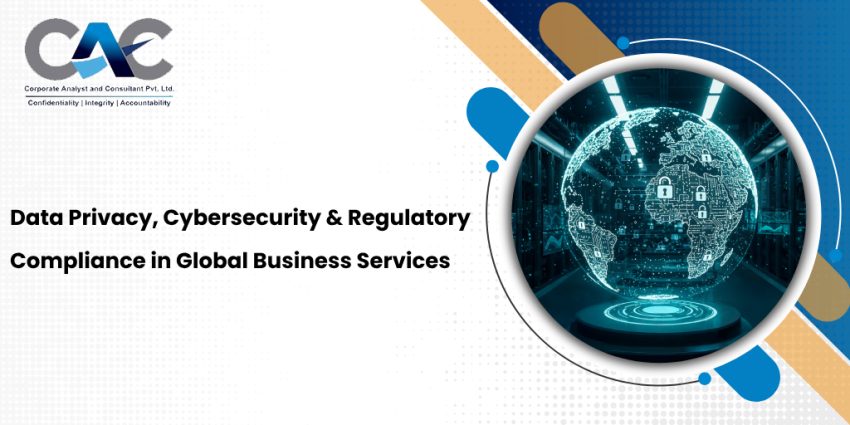In today’s interconnected world, Global Business Services (GBS) play a crucial role in driving operational efficiency, innovation, and scalability for multinational organizations. However, as global operations rely increasingly on data sharing and digital platforms, the challenges surrounding data privacy, cybersecurity, and regulatory compliance have become more complex than ever before. Protecting sensitive information while adhering to diverse international regulations is now a core responsibility for every global business entity.
Understanding the Importance of Data Privacy
The most critical component of trust in global operations is data privacy. Since GBS centers deal with huge amounts of personal, financial, and proprietary data that cross international boundaries, the concern of privacy is not merely a legal concern but a strategic one as well. Companies should make sure that personal information, be it that of the customer, employee, or business, is gathered, processed, and kept in a secure manner.
Such privacy laws as General Data Protection Regulation (GDPR) in Europe, California Consumer Privacy Act (CCPA) in the U.S., and the Digital Personal Data Protection Act (DPDP) in India provide strict specifications on how the data should be treated. In the context of GBS organizations, it will consist of creating a common model that complies with the regional laws and facilitates the free flow of information. Ensuring levels of trust around the world requires the introduction of privacy-by-design principles, strong consent, and open data policy.
Strengthening Cybersecurity in Global Operations
Digital transformation is increasing at rapid rates, and cybersecurity is becoming one of the crucial components of resilience in international business services. The enlargement of the usage of the cloud computing and remote work patterns, as well as the third-party integrations, expands the surface of attack on cybercriminals. Phishing attacks, ransomware, and data breaches may disrupt the work, make a loss, and ruin the brand image.
Organizational responses to these risks should be proactive, layered to achieve better protection against cybersecurity. This involves the constant observation of threats, encryption of personal information and introduction of multi-factor authentication in the systems. Security audits in the regularity, training of employees, and cooperating with experts in cybersecurity may be used to make the defense stronger. Also, the threat detection which is based on artificial intelligence and automation can help to improve the response time and minimize the vulnerability of complex digital ecosystems.
Ensuring Regulatory Compliance Across Borders
Adherence to the GBS setting extends much beyond data protection, protection laws and regulations and includes industry-related regulations, financial standards, and ethical business practices. It may be tricky to navigate this landscape since compliance regulations may differ depending on the area and industry. As an example, financial organizations should be able to comply with SOX, PCI DSS, or Basel III standards, and healthcare organizations might have to adhere to HIPAA or other privacy standards and regulations regarding patients.
Compliance can be monitored in real time with the help of a centralized compliance strategy based on governance, risk management, and compliance (GRC) tools. The leaders of GBS are expected to develop internal audit frameworks, keep compliance documentation, and enhance the culture of team accountability. The transparency and consistency are paramount to the development of credibility among regulators and stakeholders across the globe.
The Way Forward: Integrating Privacy, Security & Compliance
Data privacy, cybersecurity, and regulatory compliance are not autonomous objectives in the contemporary digital economy, but rather elements of a sustainable business strategy on a global scale. Through successful organizations, they are seen as processes that are dynamic and not a single obligation.
GBS providers can increase their resilience, build customer trust in them, and promote long-term value by integrating privacy and security into all layers of their operations and making compliance their collective responsibility. These pillars will see businesses that place them as their highest priorities in an age when trust is the competitive advantage and thus they will be the first ones to steer the world to a safer, more considerate and transparent future.
Also Read: Discussing the Top Trends Reshaping Global Business Services
















